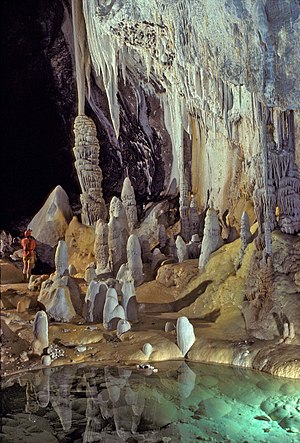วันพฤหัสบดีที่ 11 กุมภาพันธ์ พ.ศ. 2559
Space
Space
This article is about the general framework of distance and direction. For the space beyond Earth's atmosphere, see Outer space. For the keyboard key, see Space bar. For other uses, see Space (disambiguation).

A right-handed three-dimensionalCartesian coordinate system used to indicate positions in space.
Space is the boundless three-dimensional extent in which objects and events have relative position and direction.[1] Physical space is often conceived in three linear dimensions, although modern physicists usually consider it, withtime, to be part of a boundless four-dimensional continuum known as spacetime.
Deserts
Deserts
Far from being barren wastelands, deserts are biologically rich habitats with a vast array of animals and plants that have adapted to the harsh conditions there. Some deserts are among the planet's last remaining areas of total wilderness. Yet more than one billion people, one-sixth of the Earth's population, actually live in desert regions.
Cave
Cave
For other uses, see Cave (disambiguation).
"Cavern" redirects here. For other uses, see Cavern (disambiguation).
Lechuguilla Cave, New Mexico, USA
A cave or cavern is a hollow place in the ground

Paper
Paper
The pulp papermaking process is said to have been developed in China during the early 2nd century AD, possibly as early as the year 105 A.D.,[1] by the Han court eunuch Cai Lun, although the earliest archaeological fragments of paper derive from the 2nd century BC in China.[2]The modern pulp and paper industry is global, with China leading its production and the United States right behind it.Paper is a thin material produced by pressing together moist fibres of cellulose pulp derived from wood, rags or grasses, and drying them into flexible sheets. It is a versatile material with many uses, including writing, printing, packaging, cleaning, and a number of industrial and construction processes.
สมัครสมาชิก:
ความคิดเห็น (Atom)



